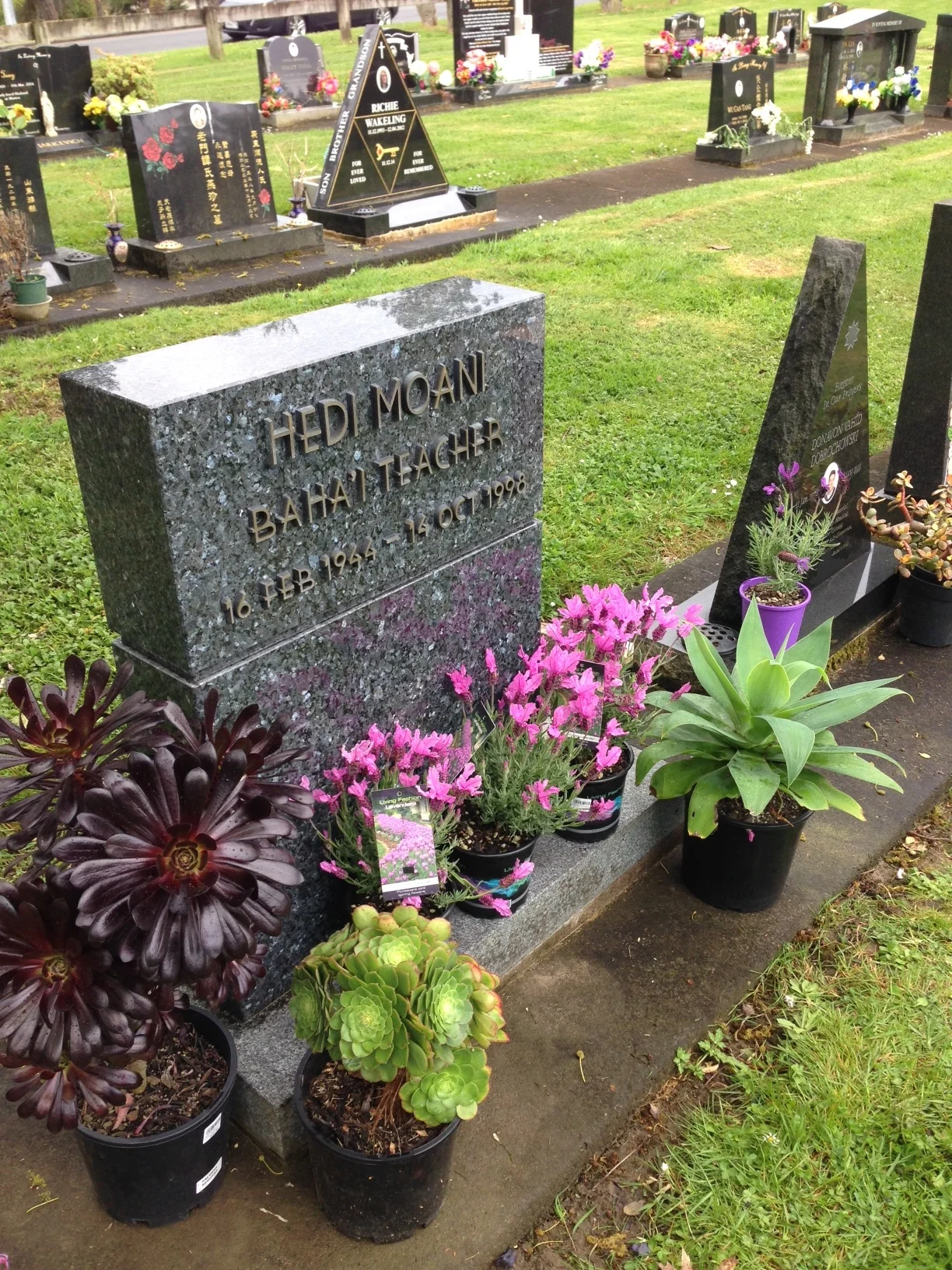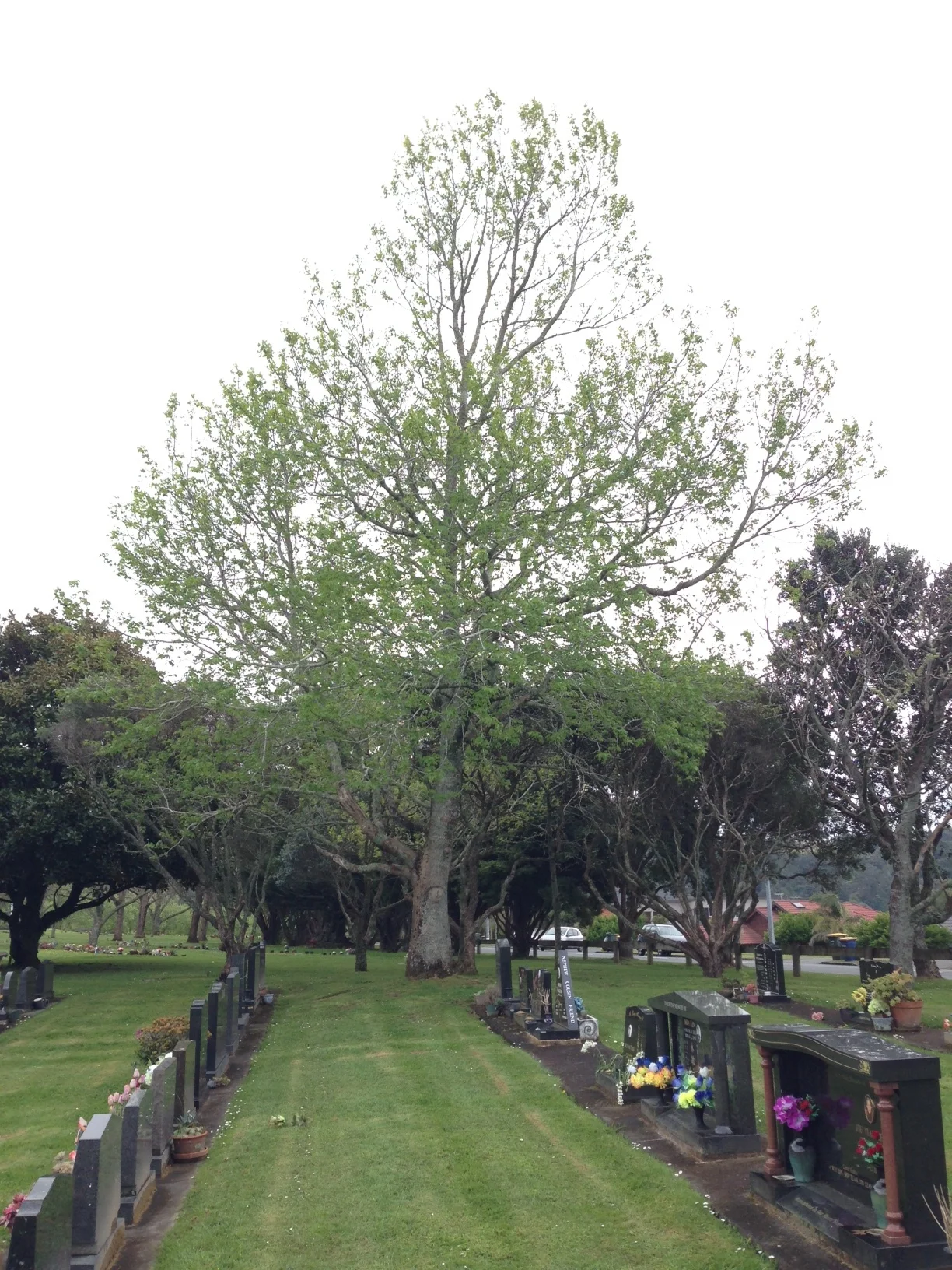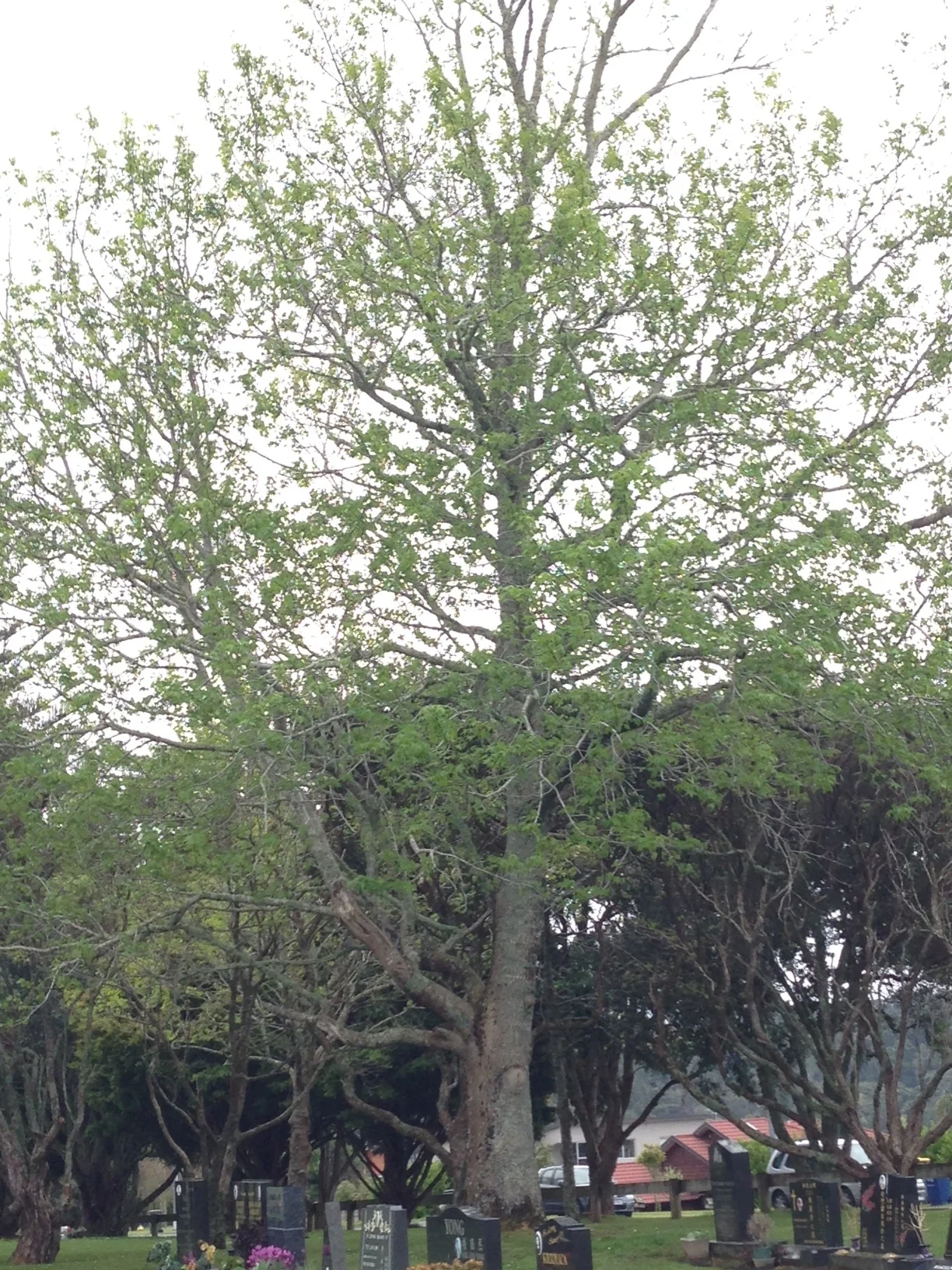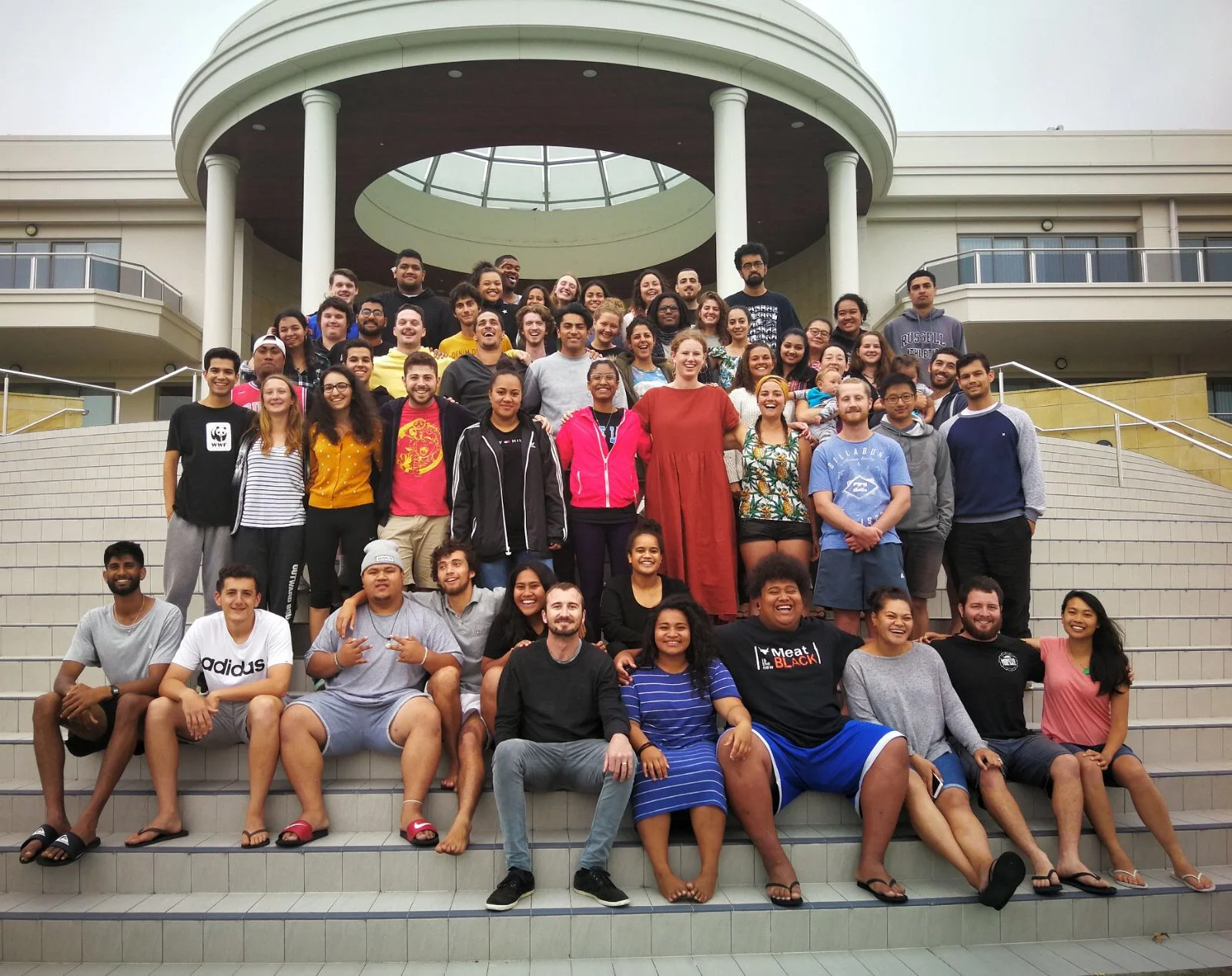20th anniversary of the martyrdom of Hedi Moani
A joyful and uplifting occasion for the 20th anniversary of the martyrdom of Hedi Moani was held on Saturday 13 October 2018. It was attended by over 120 people, young and old from across New Zealand, and also Samoa. The programme included the reading of a letter from the National Spiritual Assembly of the Bahá'ís of New Zealand (shared below); talks by Dr Rajen Prasad (who worked closely with Hedi for the establishment of Race Unity Day in New Zealand in his former role as Race Relations Conciliator) and Kelly Mascarenhas (winner of the 2018 Race Unity Speech Awards); a video collage of Hedi’s life; and stories of Hedi told by his friends. A large team helped to organise the event.
The inscription on Hedi’s grave reads “Hedi Moani - Bahá'í Teacher”. He had asked to be buried under a “magnificent tree”. Twenty years ago, only a small shrub could be found, but as can be seen in the photos, his wish has been fulfilled.
13 October 2018
17 Mashíyyat 175
To the family of Hedi Moani
Dearly loved Friends,
Tēnā koutou, tēnā koutou, tēnā koutou katoa
On the occasion of the memorial gathering to commemorate the 20th anniversary of the martyrdom of dear Hedi, the National Spiritual Assembly takes this opportunity to call to mind Hedi’s heroic, steadfast life of service.
His untimely death, occasioned by a heinous act of brutality, came as a shock and brought disbelief and grief to us all. Whilst in this earthly world Hedi was many things to many people: a father, a friend, a companion, an architect, an entrepreneur, a mentor, a colleague, a student, a teacher, a brother. Hedi is from a distinguished Bahá'í family who have furnished a number of pioneers and devoted servants to the Cause of God. He was brought up in Iran, trained in Australia and the United States, and lived for many years in Aotearoa New Zealand, which we like to believe was his true homeland. He had a well-trained mind, an eloquent tongue and a quick wit. These were underpinned with warmth and love for others, and an acceptance of all humanity.
Hedi was a mystic voyager. He sailed his ship on the seas of life, moved by winds of the spirit. He had a thirst for the refreshing waters of spirituality, and he was an eloquent speaker who was effective in conveying his message of oneness to others. It was this intuitive eloquence that endeared him so much to his adopted, beloved Māori people. Hedi was unique. He stepped beyond his cultural roots and education, to harmonise the best elements of both east and west.
He was a true Bahá'í teacher, knowledgeable, eloquent, courageous, wise, ready to learn, receptive to others, and always speaking from and to the heart. We know that one of the interpretations of the word “teaching” in Persian is “diffusing the fragrances of God”; reflecting the qualities of the divine in the human world. Hedi did this in both word and deed.
His hospitality, his generosity, his humour, his helpfulness, his willingness to work for and devote time to just causes, such as building race unity, were all a result of his spreading the fragrances of God. His work with Māori in Aotearoa as well as in the Cook Islands, in all kinds of environments including prisons, his initiation of work with the Human Rights Commission that is today flourishing as the annual Race Unity Speech Award and Conference, and other causes which Hedi espoused, are all a testament to his love for people who were not always the most popular, and who some would call the “underdog.”
Unfortunately it was this love for and generosity to those who were dispossessed that led to the loss of his own earthly life. Like Icarus who flew too close to the sun, the very qualities that gave him flight also posed his greatest risk. It was this generosity that appears to have led to Hedi’s downfall. His undying love and compassion for the dispossessed led to his death, and he joined the company of the martyrs this time 20 years ago. We know he is consorting with them in places that “the pen cannot tell nor the tongue recount”.
Hedi was New Zealand’s first Bahá'í martyr, thus designated by the Universal House of Justice on 23 June 1999, when the courts had conclusively proven that his death was as a direct result of religious antagonism on the part of his murderer. In the subsequent twenty years, the National Assembly has no doubt that the example of Hedi’s life and his sacrifice of his own life have provided inspiration and energy to the friends in this country. His gift of property for the establishment of training institute facilities will be a lasting legacy which we are optimistic will come to fruition during the coming year, and for which the New Zealand community owes an enduring debt of gratitude to Hedi and the Ma’ani family.
Warmest love to you all,
National Spiritual Assembly of the Bahá'ís of New Zealand









